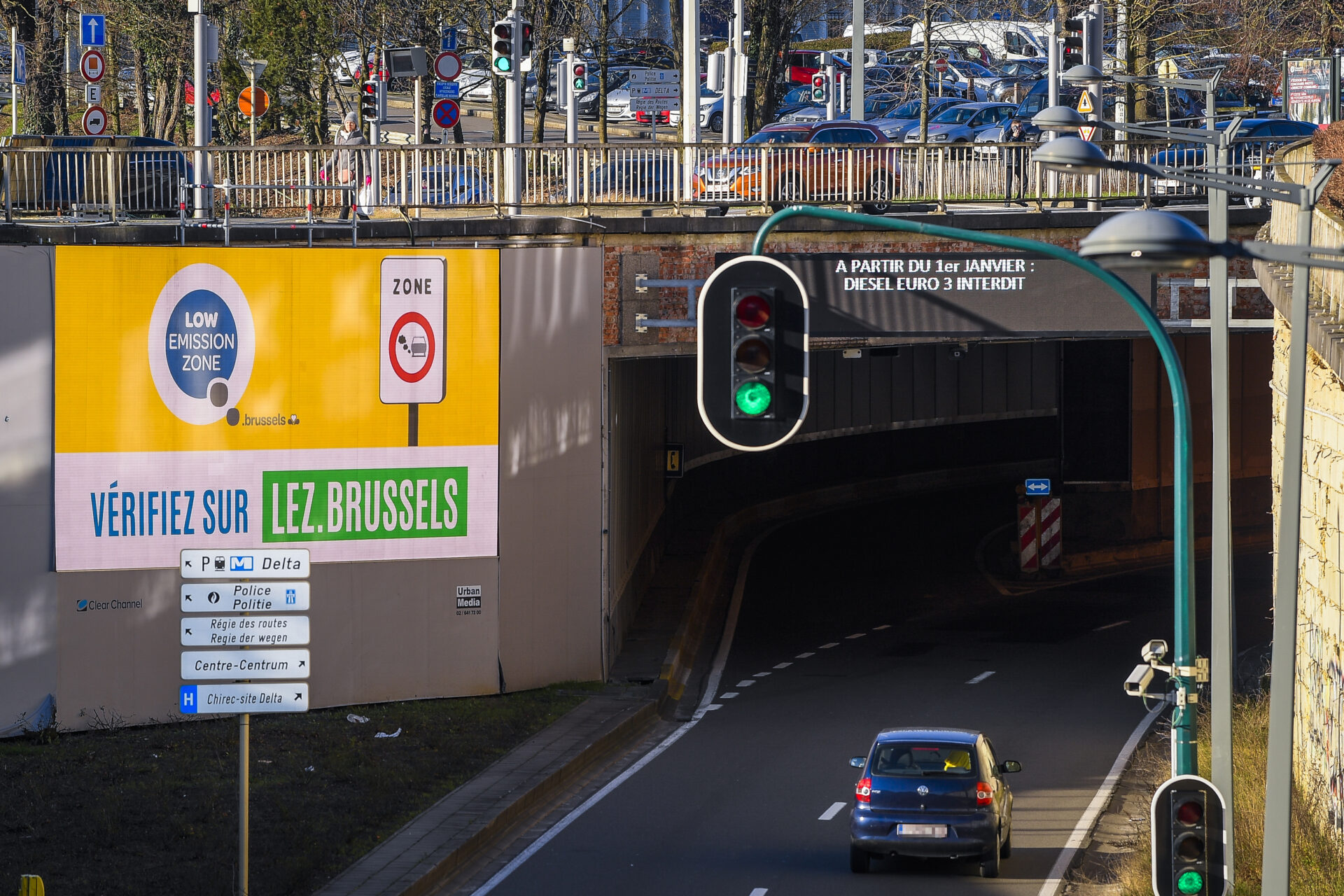As the Brussels-Capital Region continues its fight against air pollution, two measures have been cited by a European study as examples of best practices for a fairer mobility transition.
Carried out by Clean Cities, a coalition of NGOs advocating zero-emission mobility in European cities by the end of this decade, the survey lists five measures that policymakers can quickly implement to make transport “cleaner, more affordable and accessible” that specifically support the most vulnerable people in the mobility transition.
“This support is important: a growing body of research shows that low-income households emit the least amount of air pollution (and CO2) while they are exposed to the highest levels and suffer more,” the report noted.
The air in Brussels is often polluted to the extent that the maximum limit established by the World Health Organisation (WHO) is surpassed. Long-term exposure to this type of pollution constitutes a health risk and has been calculated to cost each Brussels resident an average of €1,400 per year.
However, the region has in recent years stepped up efforts to decrease pollution levels and air quality has improved, one recent report confirmed.
The organisation cited two Brussels incentives as positive examples of what cities’ authorities should be doing. It highlighted Brussels’ LEZ (“low emission zones”) bonus and the Bruxell’air premiums granted to individuals.
Examples explained
The first measure included in the report refers to the bonus linked to the region’s LEZs, where the most polluting vehicles are prohibited. People who drive in the LEZ, which stretches across most of the region, without a day pass can be fined €350.
Professionals (self-employed, micro, small and medium -sized businesses operating in Brussels) with commercial vehicles that no longer comply with regulations can benefit from a grant of up to €15,000 to purchase or lease a new utility vehicle to replace one that can no longer be driven in the Region.
The so-called LEZ bonus can also cover the purchase and installation of a charging point for electric vehicles.

The ‘low emission zone’ first banned Euro3 vehicles from entering Brussels. Credit: Belga
The second example included in the report was the Bruxell’Air allowance, which can be awarded to all Brussels residents who plan to get rid of their cars.
In exchange for their number plate being deregistered, they receive a bonus with which they receive money to benefit from different, greener mobility alternatives, such as public transport (STIB) or the Cambio car-sharing system. They can also receive a budget for purchasing or renting bicycles.
Other recommended measures for European cities include a cost reduction policy for the purchase of a bicycle, reduced fares for public transport, multimodal hubs, free access to shared vehicles, and “social leasing” for electric cars.
The report’s authors noted the overwhelming benefits that the measures can bring. As well as addressing air pollution, they contribute to a fairer mobility transition and can boost local economies.
“The costs of inaction on air pollution are far greater than those associated with the mobility transition. Air pollution is a silent killer that continues to poison our cities,” said campaign director Barbara Stoll.
Source : BrusselsTimes








































